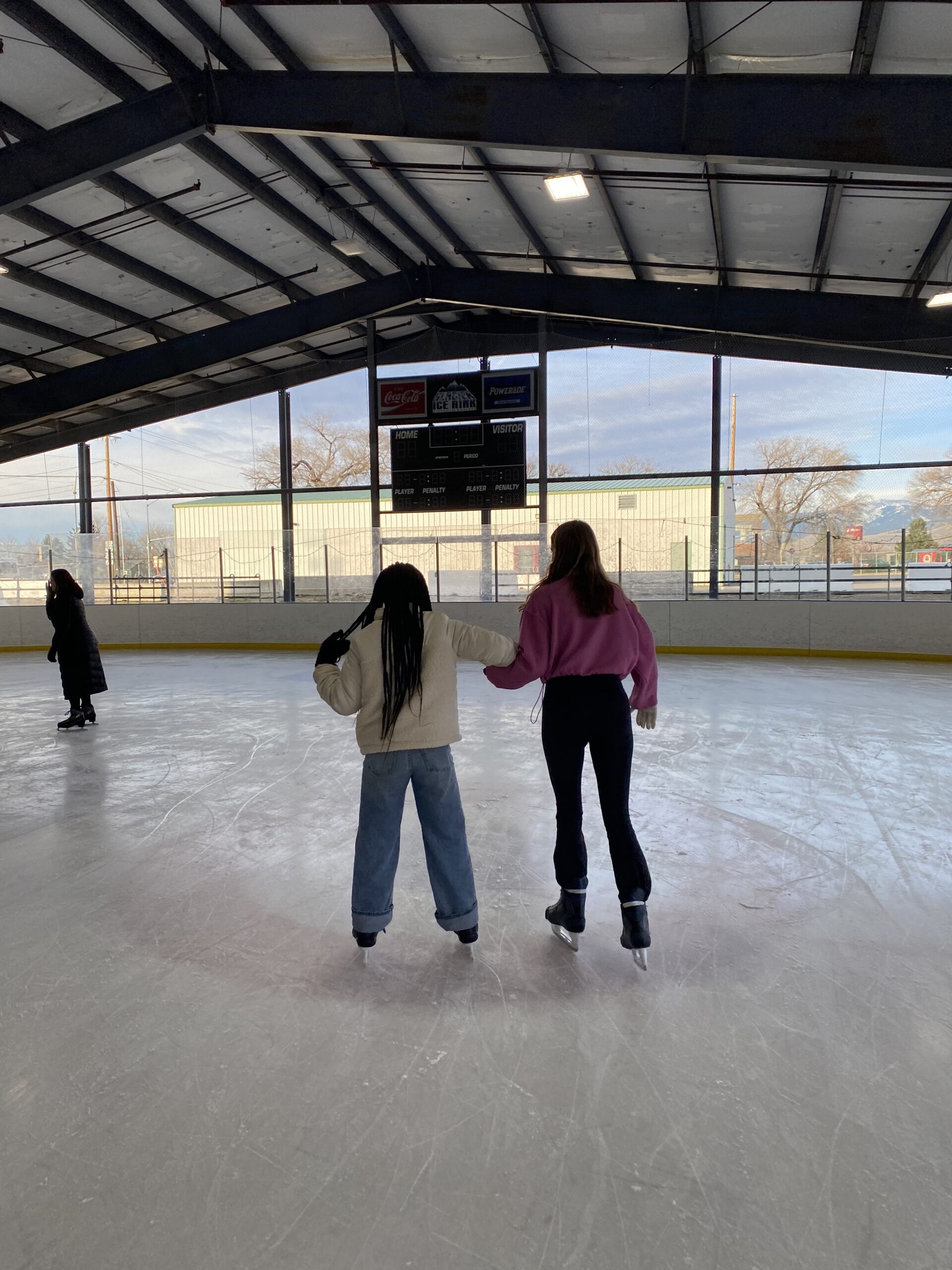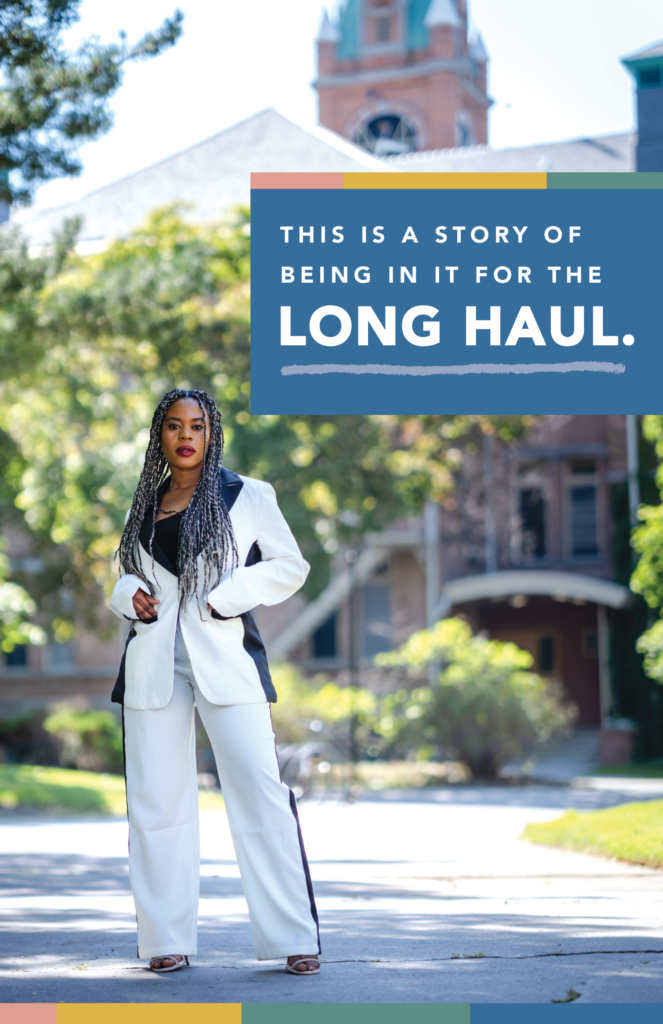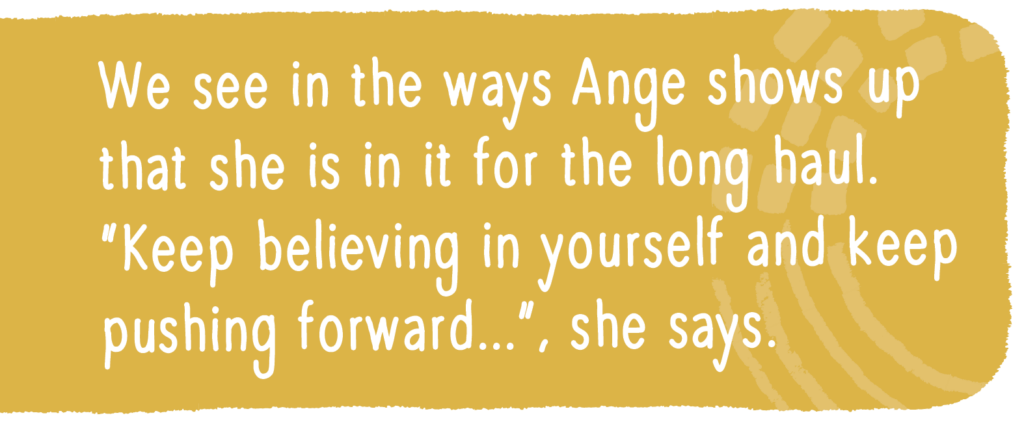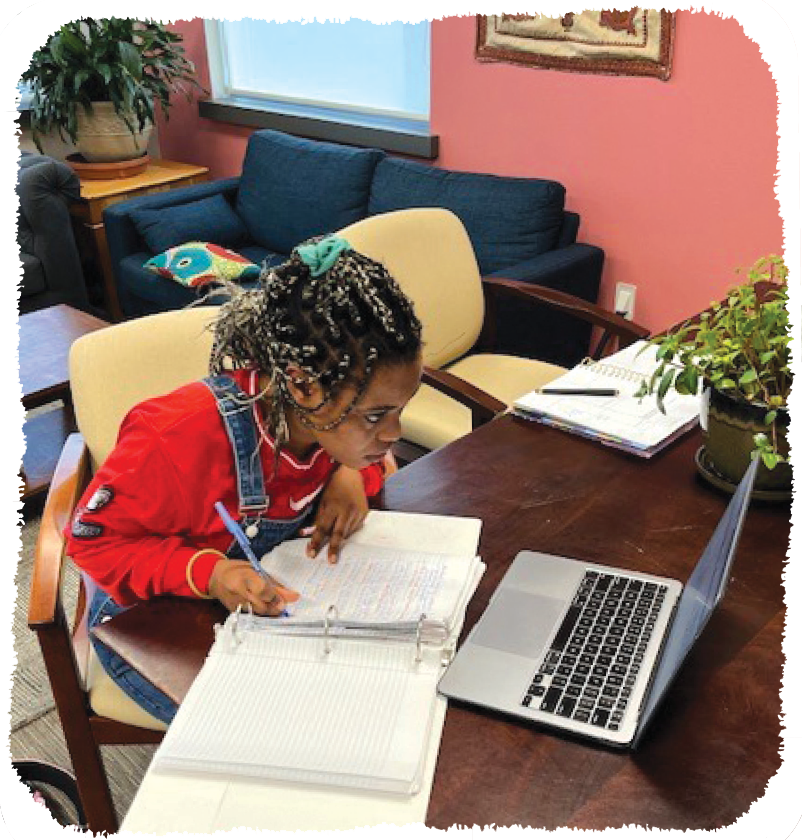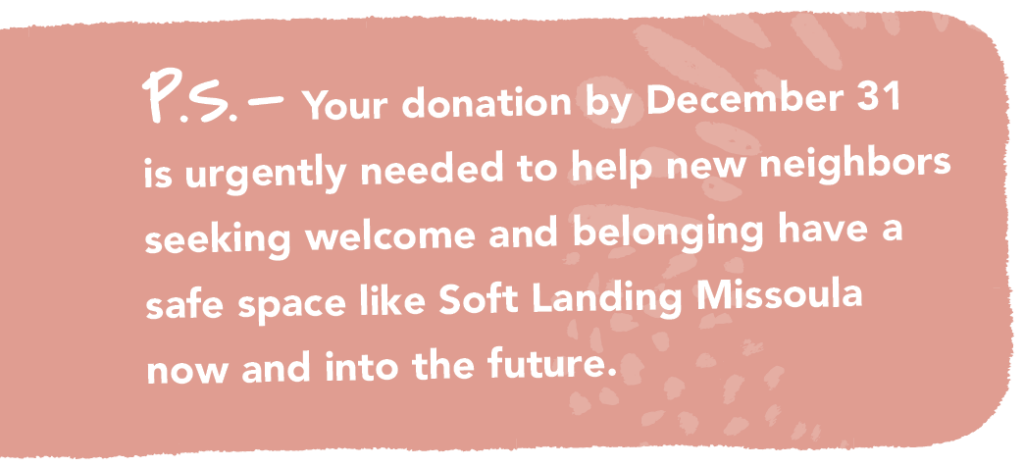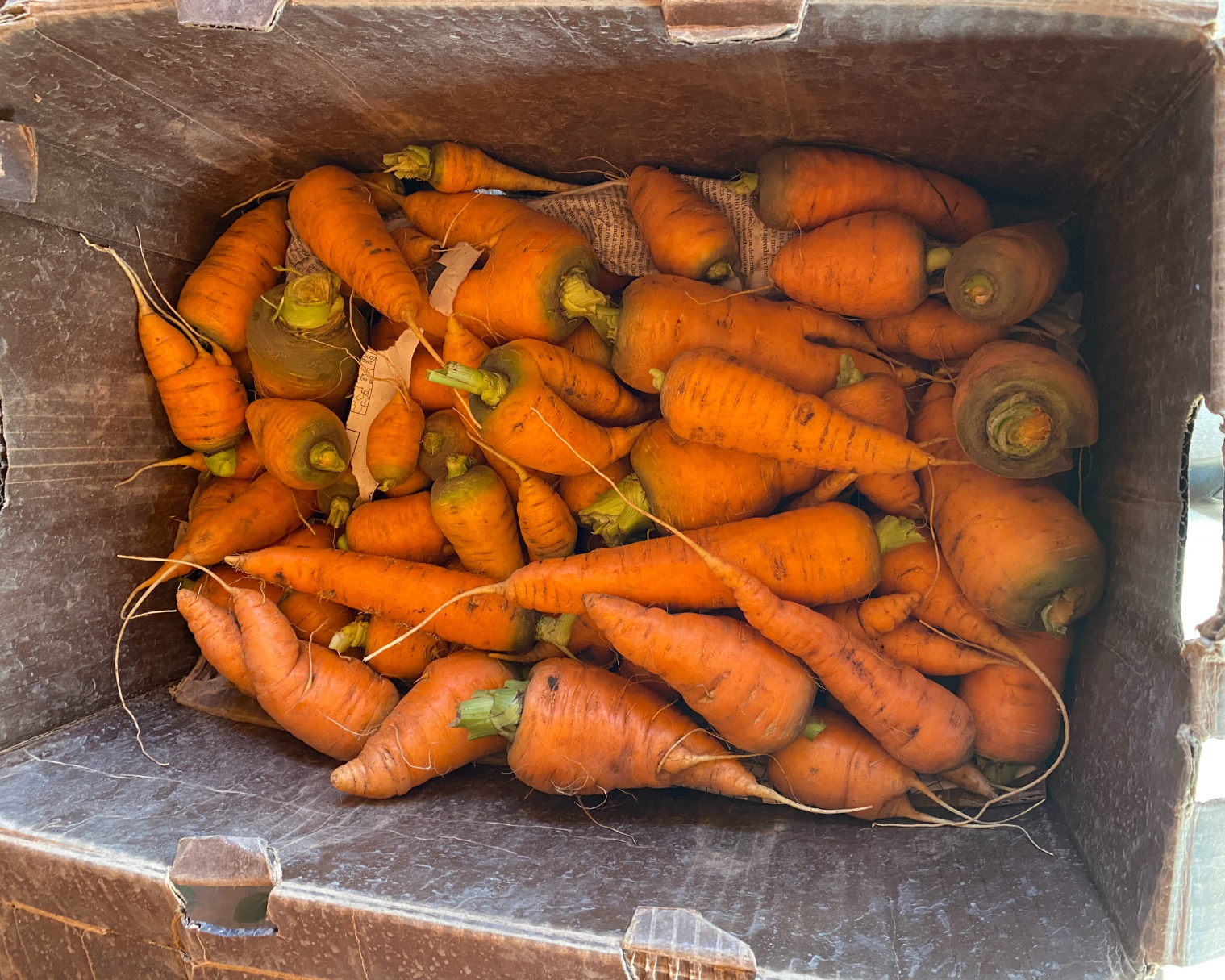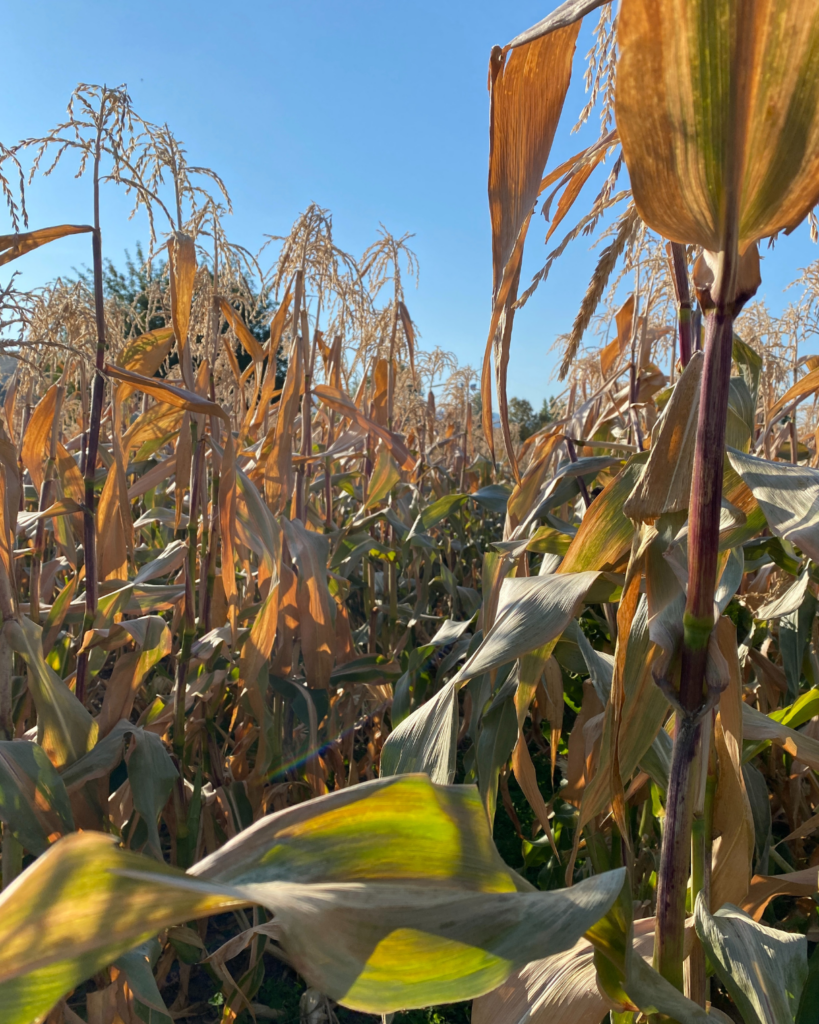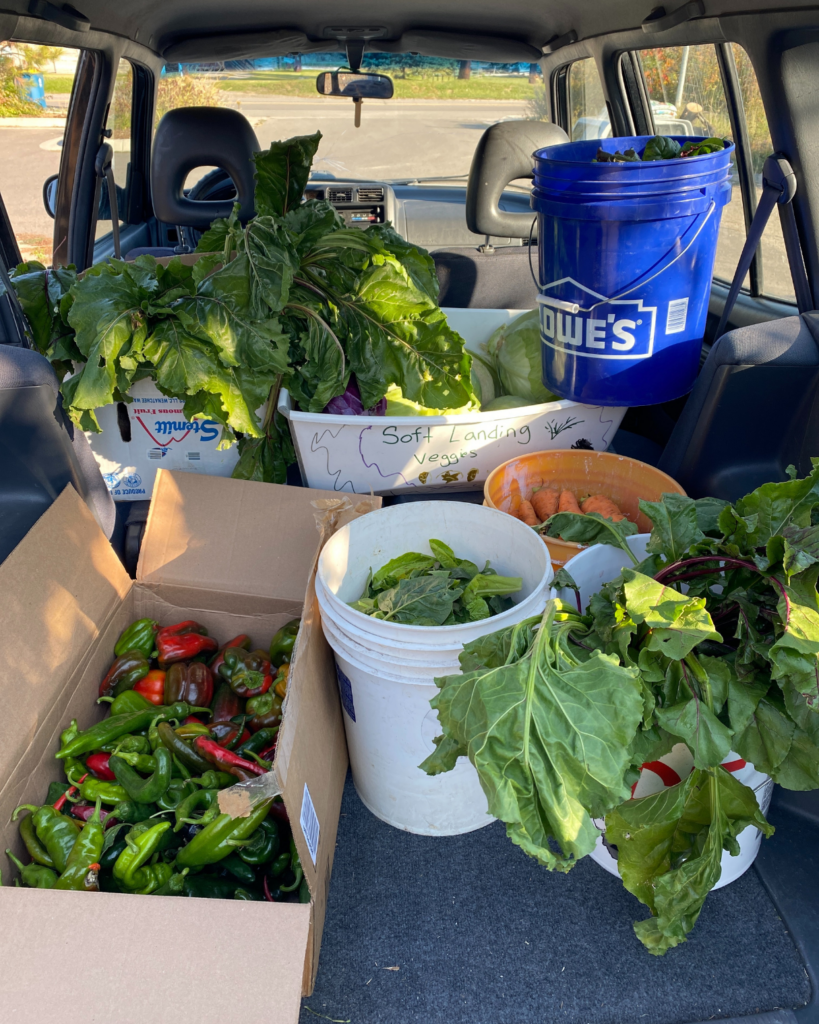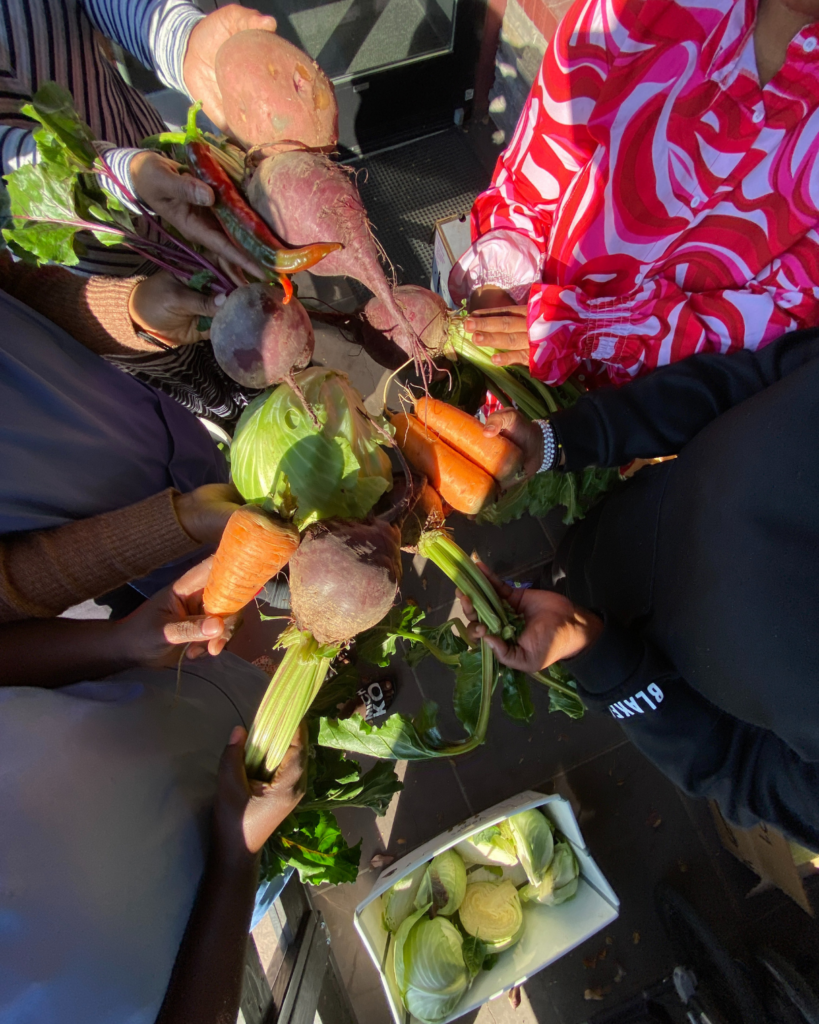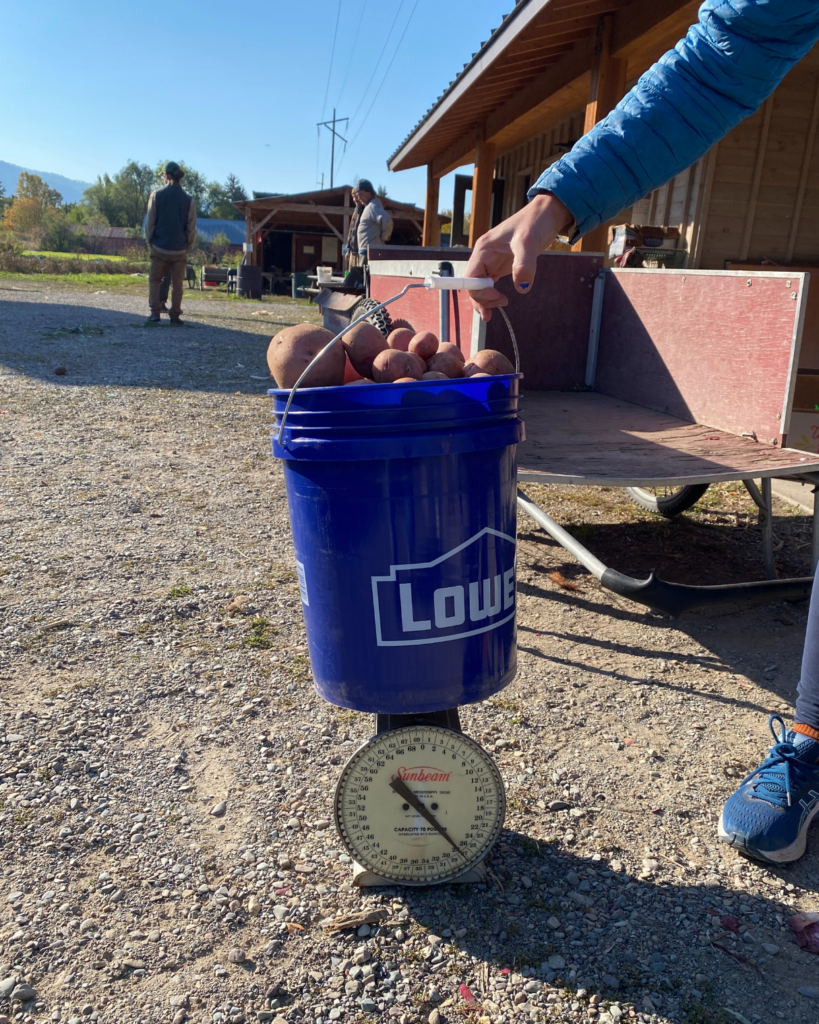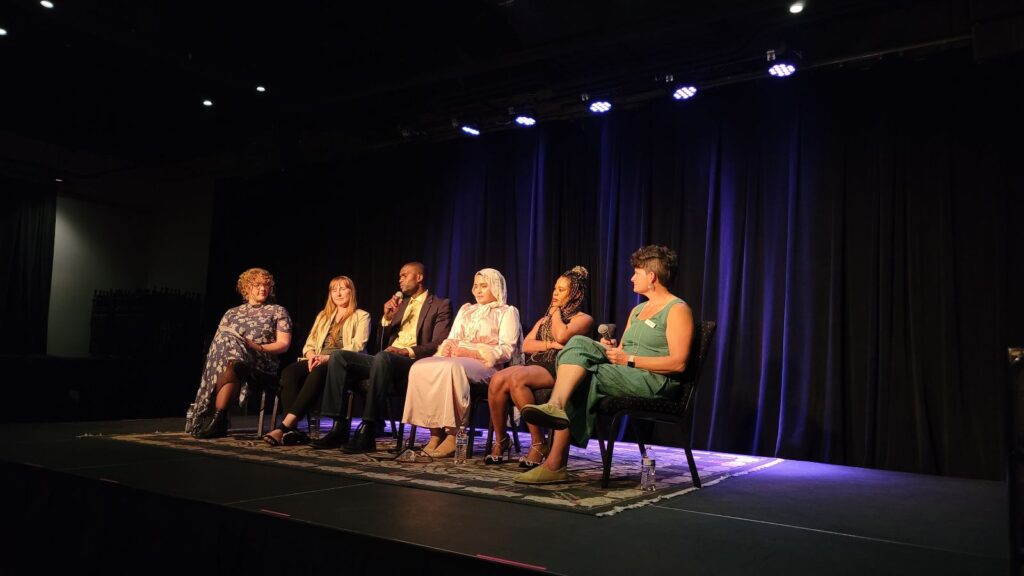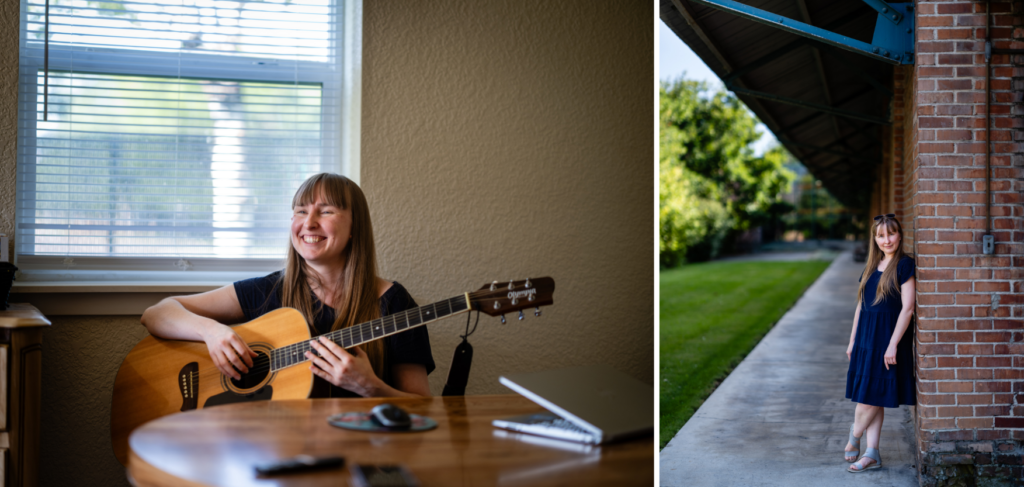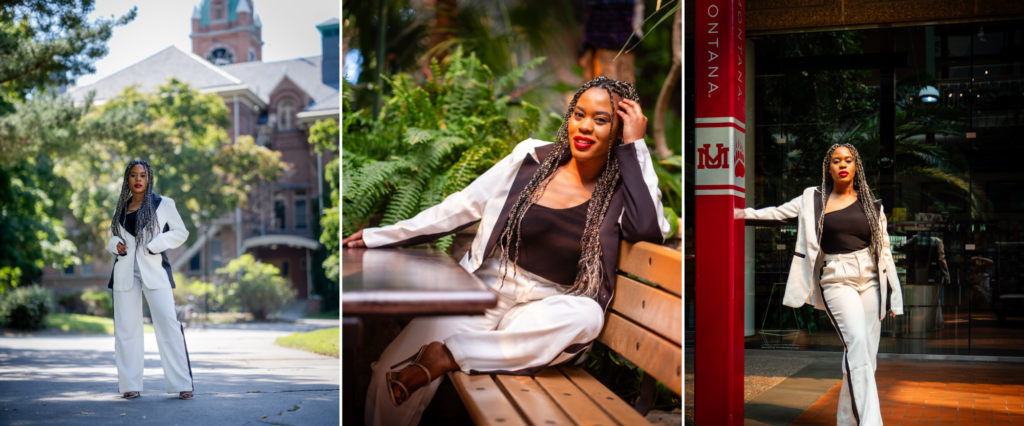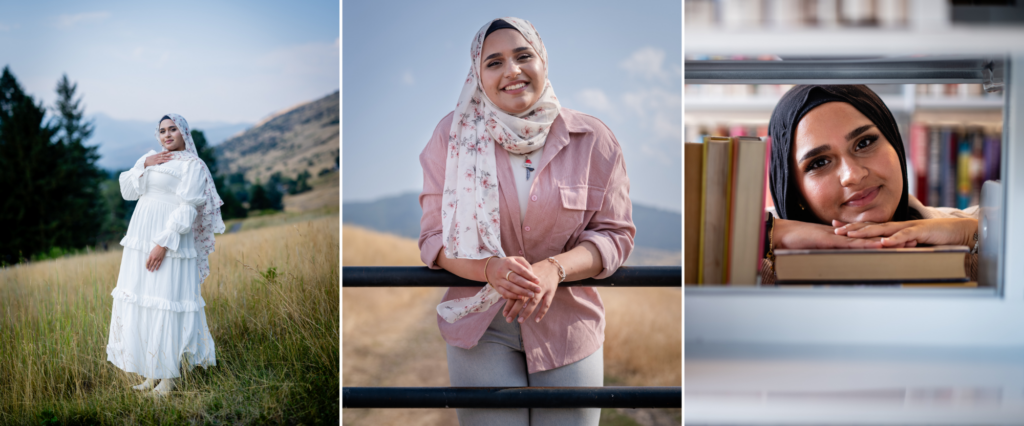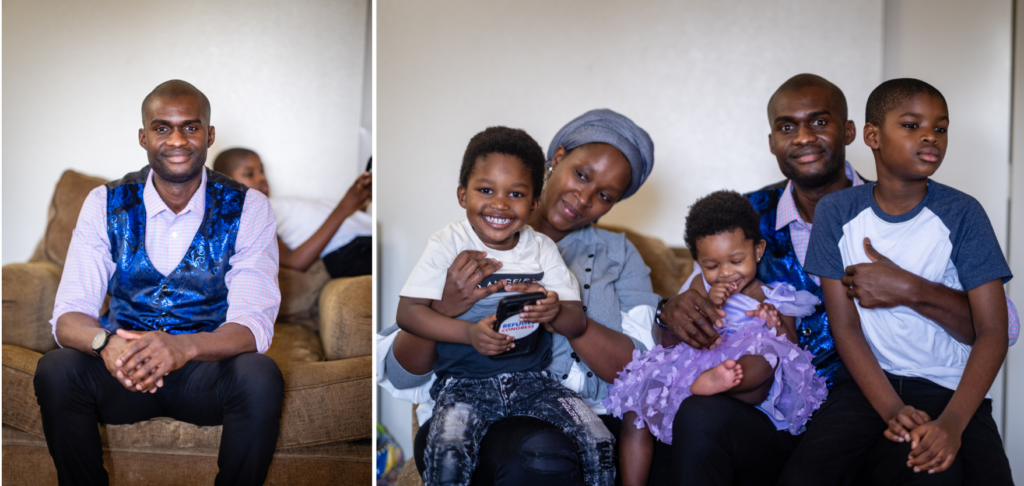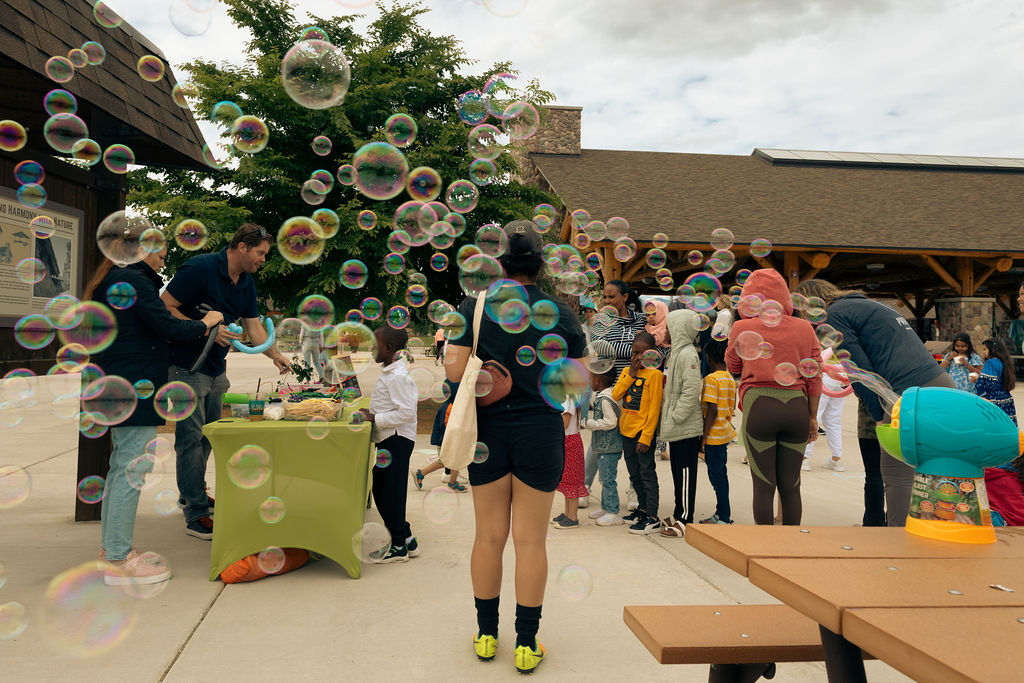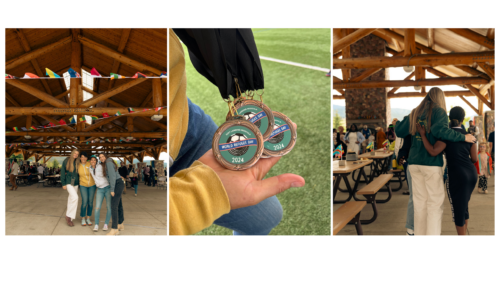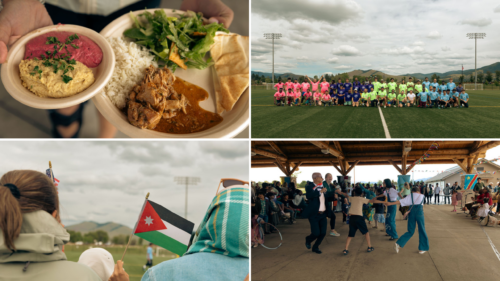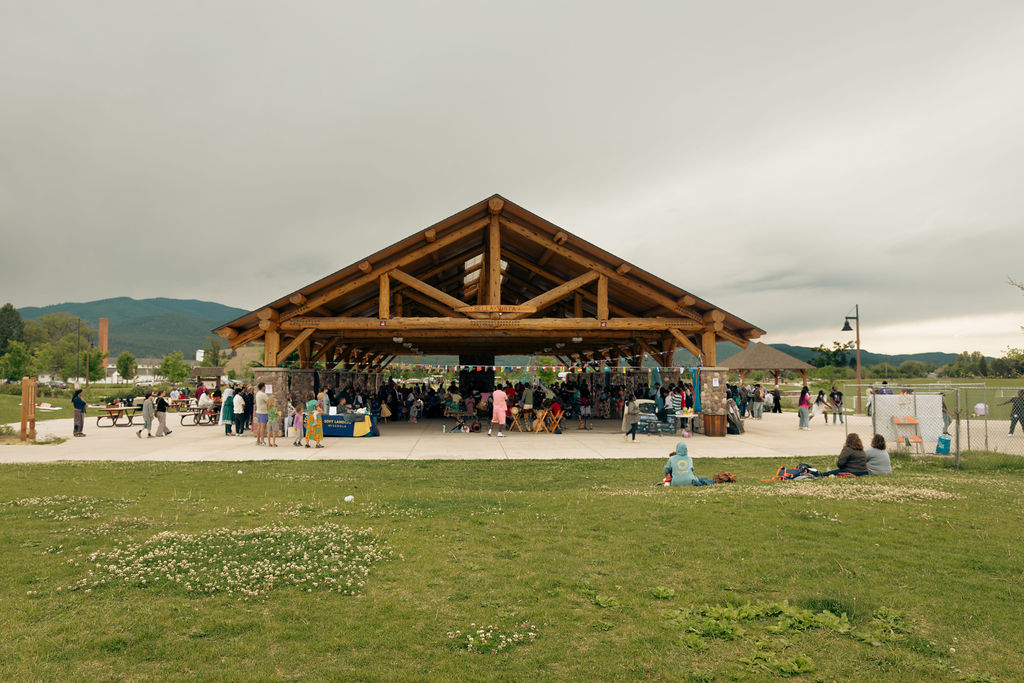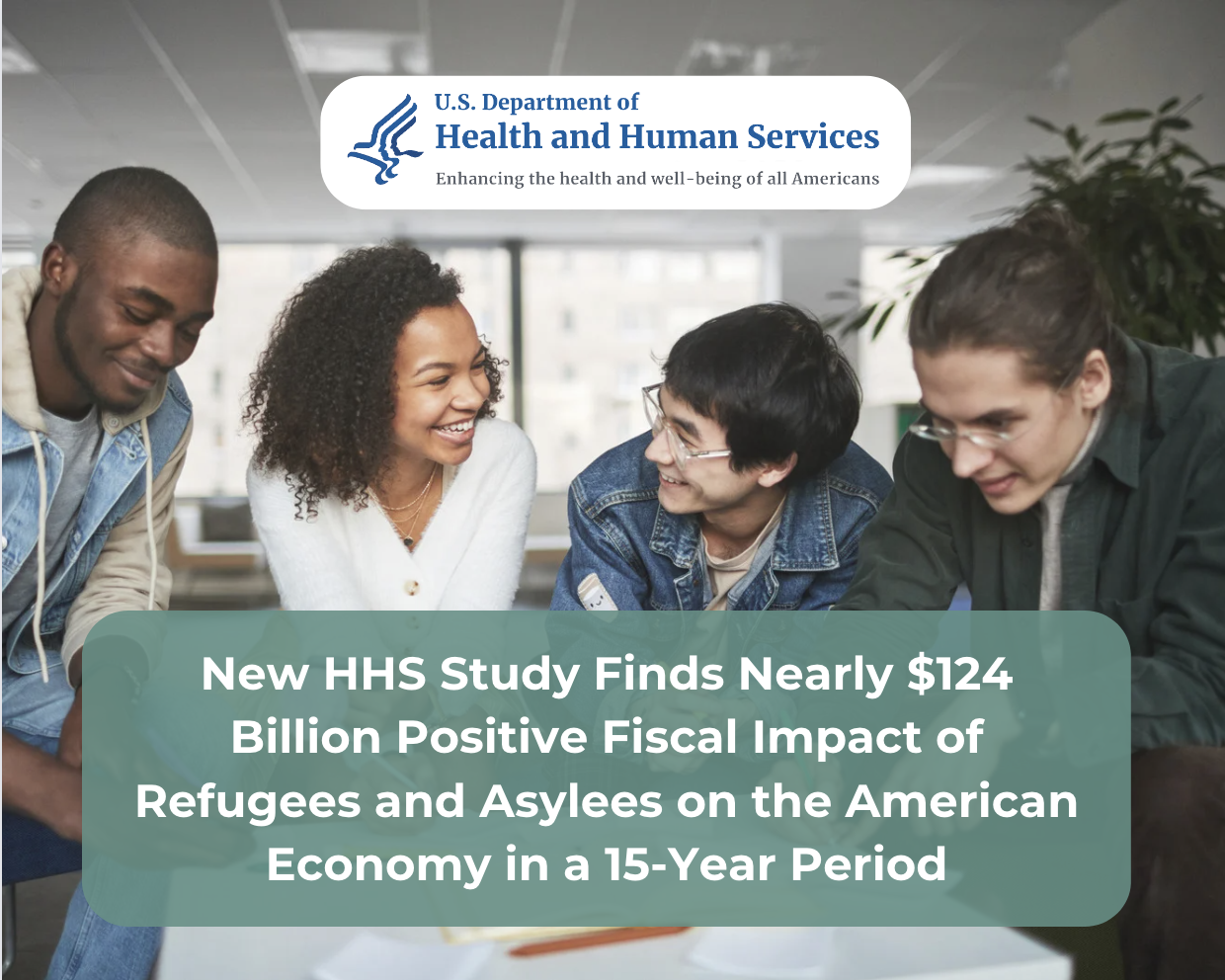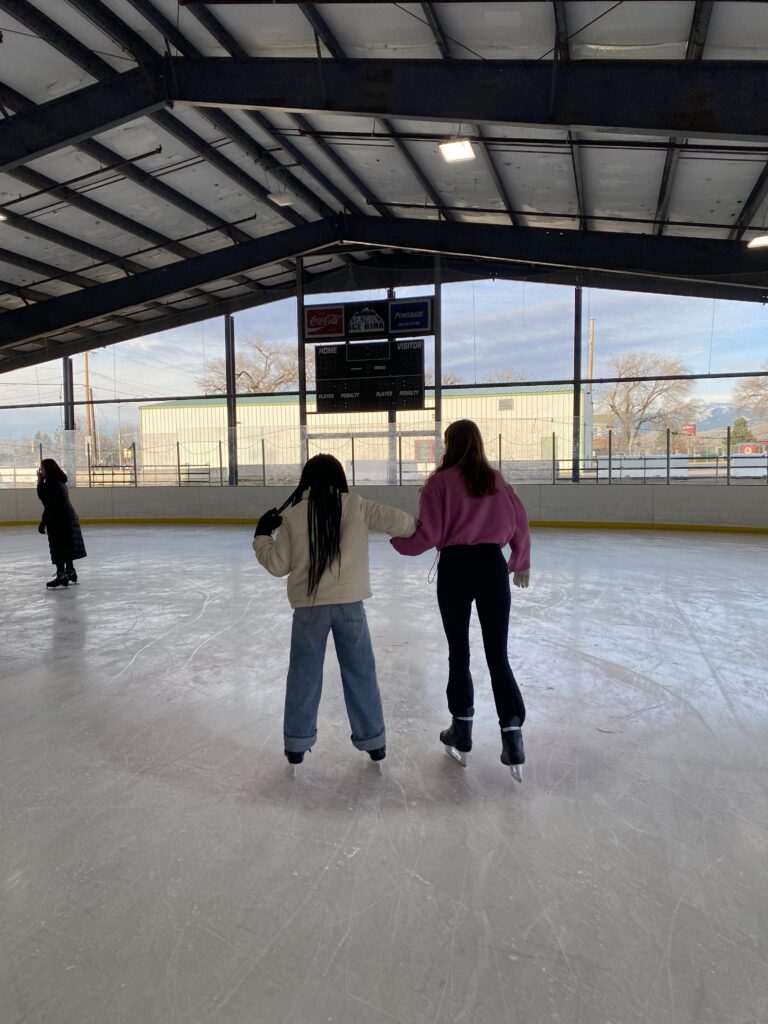
At Soft Landing Missoula, we are continually inspired by the vibrant ecosystem of support that surrounds our refugee and immigrant neighbors in Missoula. Refugees and immigrants often arrive in their new home with very few material possessions, landing in a place where they know very few people- if any at all. As you can imagine, it takes perseverance, hope, and enormous effort for a family to rebuild a life. The rebuilding process is, of course, made much better if you have a strong community of partners on your side, offering a helping hand, a warm smile, and opportunity for joy along this difficult path.
Soft Landing Missoula is here to help newcomers build a true and lasting supportive community- something that simply cannot be done by us alone. We have found an enthusiastic willingness by countless individuals and partners in Missoula to be part of the ecosystem of a welcoming community, creating a living, breathing network of connection, where each partnership tells a story of hope, understanding, and mutual growth.
While we work with partners in almost every aspect of what we do each day, we would love to share a bit about our Youth Program to exemplify our community’s participation in the work of welcome. We first entered this space through the request of new arrival families looking for academic support for their children, as well as interest from Missoula County Public Schools (MCPS) to work with us to find ways to bolster the growth of the ELL (English Language Learning) services they were able to offer. Starting out, we utilized our pool of volunteer interest to help boost ELL support in the schools while we began to also grow our own Youth Program to provide general academic mentorship for newcomer families. Today, this program has grown to engage over a hundred youth and young adults annually with steady, loving, and empowering academic (and recreational!) support for students from middle school through college ages.
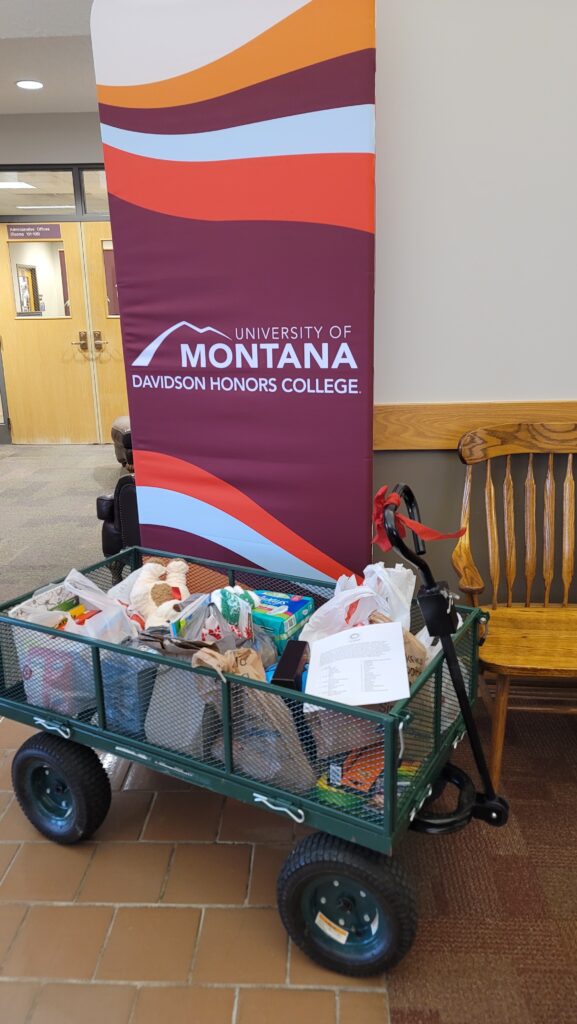
Our Youth Programs show the power of community partnerships in creating a welcoming environment for newcomers. At the heart of these efforts is our after-school tutoring program, in continued partnership with MCPS and generously hosted by St. Paul Lutheran Church. When we outgrew our original office space due to the increasing number of students we serve, St. Paul opened their doors and hearts to us free of charge, providing a steady, nurturing environment for learning and growth. Today, we support over 70 kids through this program, and have celebrated the high school graduations of over 23 plus 12 set to graduate this year, thanks in part to the dedication of the St. Paul snack ladies who ensure every child is fueled up for their studies!
Our academic mentorship has grown to support 14 remarkable college students, with the potential to help four more in 2025. The University of Montana has become a true partner in this journey, offering comprehensive support for refugee students’ academic and campus experiences. The Davidson Honors College has been a steadfast ally, providing volunteer connections, program spaces, campus tour support, and serving as an AmeriCorps campus partner. They also help with our holiday gift drive every year.
The Office for Student Success and Franke Global Leadership Initiative have taken a thoughtful approach by providing partial funding of our College Coach position and recruiting a dedicated intern to help refugee students connect with essential campus resources. By collaborating with the Office for Global Engagement and the Lifelong Learning Center, we’ve created a supportive network that addresses the unique challenges faced by refugee students. Our work spans multiple educational stages, from inspiring high school students to pursue college to helping current students navigate UM’s institutional processes and course requirements.
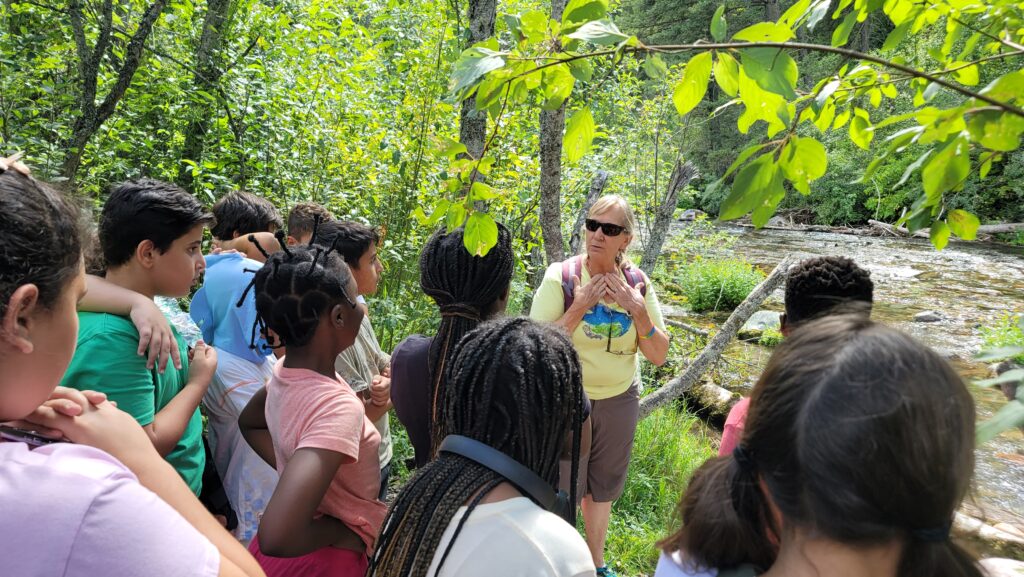
As the Youth program has grown to extend beyond general academic support, community partners have played a crucial role in enriching the lives of refugee and immigrant youth through additional creative and cultural programming- often by being the ones to initiate a relationship with us. Bathing Beauties Beads offers beading workshops, while The Clay Studio provides free pottery classes, both sparking creativity and pride in our young participants. The Roxy Theater adds cultural richness, donating their annex space twice a year for movie showings and offering an opportunity for students to practice skills in public spaces like ordering food and theater etiquette. From “Space Jam” to “Black Panther” to “The Princess Bride,” these events create shared experiences that transcend cultural boundaries and help build friendships in and outside of our program. SpectrUM brings innovative STEM learning tools to our office through their mobile programming, sparking curiosity and creativity among youth visiting the community center. The Missoula Public Library also offers space every year for our summer academic programming, whether it is a book club or a science outdoors program. Nathan Stone was an important community partner/volunteer the last two years facilitating this group. Big Sky Watershed Education Network also provided some guided programming for our science group this summer.
Physical activities form an essential part of our youth programs, teaching valuable life skills and making sure newcomer kids have access and opportunity for participation in the same activities that other Missoula kids enjoy. Here Montana and Freestone Climbing Gym offer free rock climbing opportunities that teach kids not just a sport, but confidence and teamwork, while Strikers FC offers scholarships and peer transportation to provide many refugee youth access to the joy of soccer, an internationally played sport that many kids already know and love.
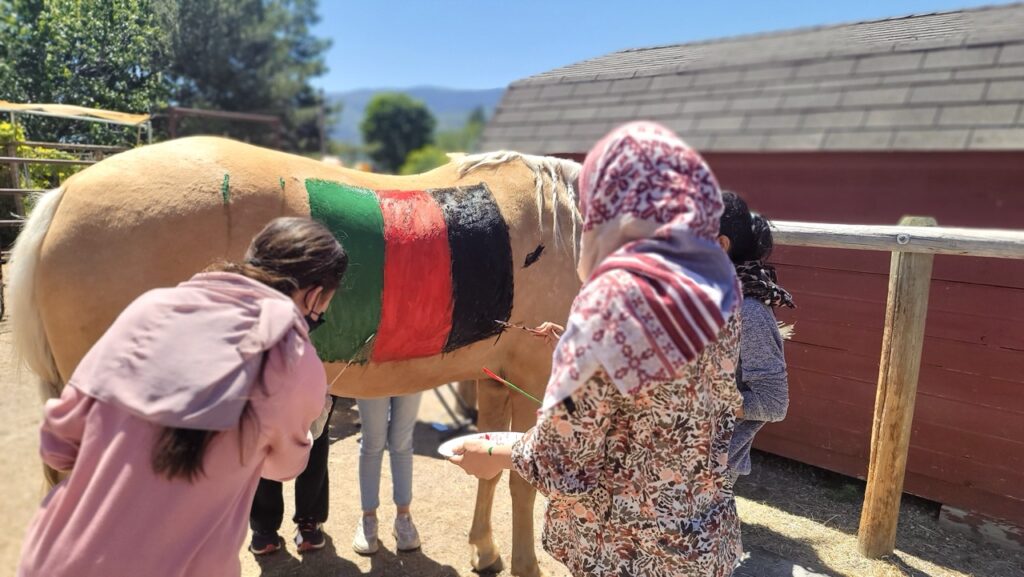
For nearly four years, Girls on Shred has been introducing middle and high school girls to snowboarding, fostering a sense of adventure and camaraderie. The Missoula Ski Education Foundation (MSEF) has been a game-changer for our high school students, now in its third year of collaboration. MSEF goes beyond by fundraising for ski days, providing passes to volunteers, pairing students with mentor families, and coordinating logistics and meals. Ice skating has become a beloved annual tradition, now in its fourth year, with the Women+ Hockey Association of Missoula (WHAM!) volunteers offering their expertise on the ice. The Missoula Alliance Church (MAC) has been instrumental in making these events possible, providing funding and transportation support for both our ice skating outings and summer days at Splash Montana. These partnerships, along with support from the Hellgate and Sentinel Key Clubs and the UM Experiential Learning Center, who assist with our holiday gift bags, demonstrate the community’s commitment to creating inclusive recreational experiences for all Missoula youth.
MAC also provides the use of their space at the Welcome House for our High School Girls Leadership Council. Dunrovin Ranch and E-bar-L ranch also both provided opportunities for us to take our middle and high school girls groups horseback riding this summer. The Peas Farm partners with us to bring our New Arrivals Club to their farm and learn about local food production as well as hosting us for the Pumpkin Party every year.
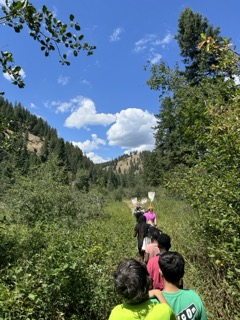
One of our newest and most dynamic youth initiatives is the Soft Landing Missoula middle school GIRLS! (Girls Immigrant and Refugee Leadership Squad) program. This group embodies the collaborative spirit of our community, with the girls themselves taking the lead in choosing activities and shaping the program’s direction. Missoula Parks and Recreation has been an invaluable partner in bringing these activities to life, from ice skating to sledding, fostering confidence and community connections. Their long-standing support extends to facilitating accessible enrollment for refugee families in summer camps and this year, they’re piloting an after-school program with GIRLS!, providing transportation and staff support for weekly social, recreational, and academic activities.
We’ve also partnered with Earth Within Girls, who lead empowering workshops on self-discovery and personal health, creating safe spaces for young women to explore their identities and build lasting friendships. Our programming has expanded to include a soccer program facilitated by community partner Bela Bucciarelli in collaboration with CS Porter Middle School, and a summer dancing workshop led by Lizzi Juda from Turning the Wheel.
In addition to all the amazing partners we get to work with on the daily we have a number of other partners that donate to the youth program! Whether it’s opportunities, supplies, food or anything else you can think of they are there for us! Bridge Pizza, Big Dipper, Sweet Peaks, The Missoula Food Bank, The Roxy Theater, Big Sky Arcade, Hockey Wolf, A Carousel for Missoula, and Ace Hardware are just some of the amazing partners that help us provide the sweetest treats and sturdiest equipment to make all our programmatic activities thrive.
At Soft Landing Missoula, we recognize that our work is about more than providing services – it’s about creating a truly welcoming ecosystem where every individual can get support for their unique needs and dreams. Each partnership, each shared moment, each small act of kindness contributes to a larger narrative of community, understanding, and mutual respect. Together, we are building a Missoula where diversity is not just accepted, but celebrated – where every new neighbor can find not just a soft landing, but a true home. Thank you to everyone who makes this possible.


